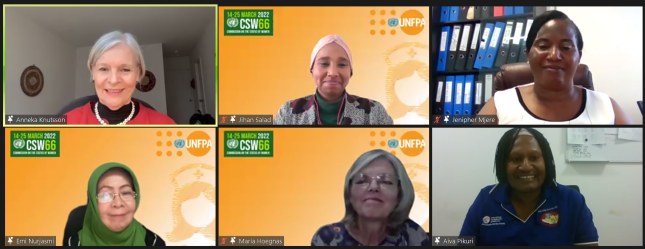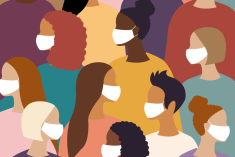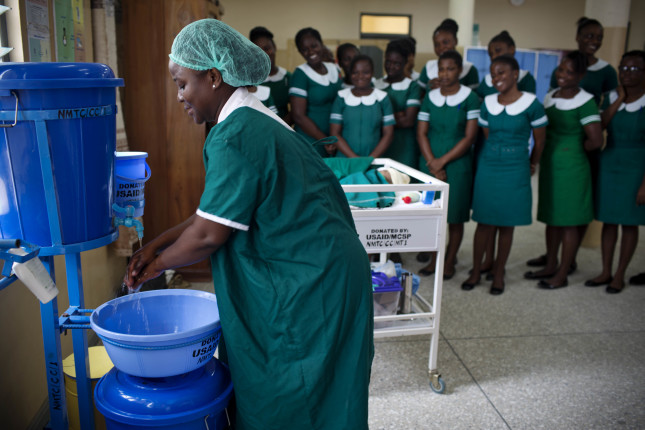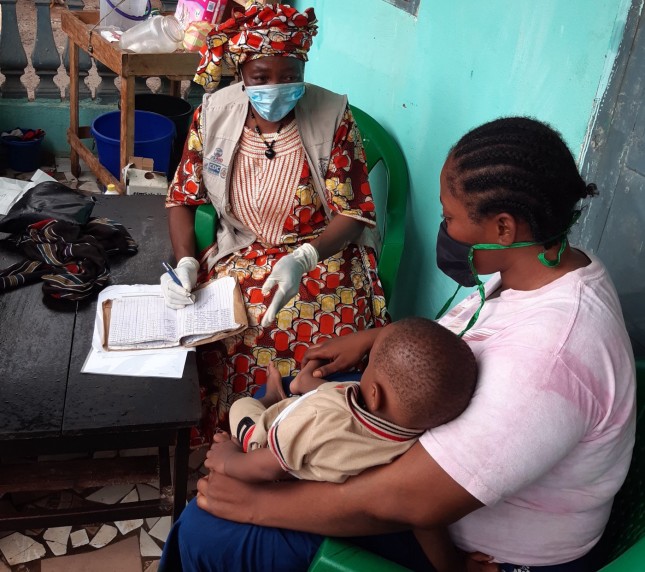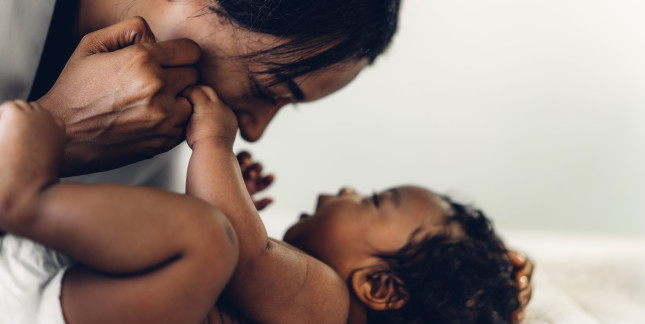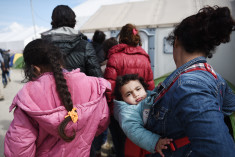Chanel Lee
Chanel Lee is a former research intern for the Wilson Center’s Maternal Health Initiative (MH). They are a second-year Master’s of Science in Public Health (MSPH) student at the Johns Hopkins Bloomberg School of Public Health, studying women’s sexual and reproductive health. They are broadly interested in examining gendered health outcomes and equity within underserved communities.
Prior to joining the Wilson Center, Chanel received a B.S. in neuroscience from the Johns Hopkins University in Baltimore, Maryland. At Johns Hopkins, they became highly involved in menstrual equity work and developed a passion for community impact and engagement.
-
Silencing the Stigma of Menstruation
›
Every month, young women and girls in the villages of Nepal make their way into makeshift huts where they will reside for the week until their menstruation has finished. Some of them will turn to nearby sheds whereas others will travel through dense forests to reach these huts. Venomous snake bites, asphyxiation, and rape are just a few of the harsh realities of living in these poorly ventilated and weakly protected menstrual huts. This practice of self-isolation called “chhaupadi” is an ancient tradition of “untouchability” rooted in the belief that menstruation is sinful and impure. Considered bringers of misfortune, menstruating girls and women are forbidden from taking part in any household, religious, and social activities under this tradition, forcing them to distance themselves from their family and community during this time. Although chhaupadi seems like an extreme case or isolated custom, it actually represents a common global issue—menstrual stigma.
-
66th Session of the Commission on the Status of Women: Six Pillars to Support Midwives
›
“When women can decide on the timing and spacing of their births, are treated with respect, and offered quality of care across the life course—they are not only able to survive, they, their families, and their communities are able to thrive and flourish. By directly and indirectly contributing to women’s empowerment, midwives are contributing to strengthen economic and productive and equitable societies,” said Dr. Julitta Onabanjo, Director of the Technical Division at the United Nations Population Fund (UNFPA), New York, at a recent event hosted by UNFPA as part of the 66th Session of the Commission on the Status of Women. Midwives and midwifery experts convened to discuss the important role that midwives play in the improvement of gender equality, women’s economic empowerment, and climate justice.
-
Break the Bias: Breaking Barriers to Women’s Global Health Leadership
›
We need to ensure that diversity is shaping and influencing global health decision-making and this is what we mean when we call for gender transformative leaders, said Dr. Roopa Dhatt, Executive Director of Women in Global Health, at an International Women’s Day event hosted by Women in Global Health to launch the first-ever book on women’s leadership in global health. “We’re calling for diverse leadership with intersectionality looking at transforming power and really making sure we’re going to the root drivers of inequities and driving systems change,” said Dr. Dhatt. Some 28 authors and 11 interviewees from 17 countries across 6 regions came together to write this rallying call to redress gender inequity in health leadership. Women and Global Health Leadership: Power and Transformation explores barriers and facilitators to women’s global health leadership; showcases the personal, professional, and political journeys of women leaders across global health sectors including government, academia, and civil society; and offers pragmatic solutions to increasing women’s representation at all levels of leadership, said Dr. Rosemary Morgan, Associate Scientist at the Johns Hopkins Bloomberg School of Public Health.
-
The Lasting Effects of the COVID-19 Pandemic on Women’s Work, Health, and Safety (New Report)
›
While the COVID-19 pandemic has affected the lives of many around the world, its effects on women have been particularly devastating. Even before the pandemic, women are highly affected by violence. Since the pandemic, rates of gender-based violence have risen, while uptake of critical health services have decreased. Women, especially low-income women, women of color, and migrant women, are also more likely to work in jobs that are underpaid, undervalued, and unprotected, and they comprise the majority of the frontline or “essential” workforce, which includes grocery and food retail workers, health care workers, and care workers.
-
No Progress Without Quality: Why Quality of Care Matters
›
Evidence shows that in low- and middle-income countries, the expansion of health coverage or access to care has not always reduced overall mortality, said Dr. Patricia Jodrey, Child Health Team Lead in the Office of Maternal and Child Health and Nutrition at the U.S. Agency for International Development (USAID). “However, the analysis also showed that when countries have progressed in improving the quality of their health systems, the survival rate tends to improve,” she said.
-
Has Maternal Mortality Risen During the COVID-19 Pandemic? The Need For More Data
›
Since its onset, the impact of the COVID-19 pandemic on maternal mortality has been a question of great concern. And yet, few empirical attempts have been made to capture the potentially profound impact of the pandemic on maternal deaths, particularly in resource-limited settings.
-
The First-Ever White House Maternal Health Day of Action – Access to Care is Critical
›
“Regardless of income level, regardless of education level, Black women, Native women, women who live in rural areas are more likely to die or be left scared or scarred from an experience that should be safe and should be a joyful one; and we know a primary reason why this is true – systemic inequities,” said Vice President Kamala Harris during her opening remarks at the first-ever White House Maternal Health Call to Action Summit on December 7, 2021. Members of Congress and maternal health advocates gathered to discuss the importance of addressing racial disparities and systemic challenges in maternal health through national policy.
-
COVID-19 Pandemic Exacerbates Violence Against Refugee Women and Girls
›
Currently, refugee women and girls are facing three concurrent crises: their ongoing humanitarian crisis, the health crisis of the COVID-19 pandemic, and the invisible crisis of gender-based violence (GBV). COVID-19 has severely worsened various dimensions of inequality for refugee women and girls. A 2020 report found that 73 percent of forcibly displaced women interviewed across 15 African countries reported elevated cases of domestic or intimate partner violence due to the pandemic. In addition, 51 percent reported sexual violence and 32 percent observed a rise in early and forced marriages.


